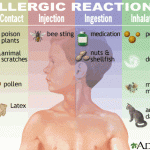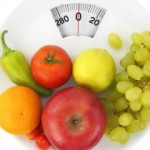(This article was extracted from www.soyfoods.org)
Soy foods are low in fat, cholesterol free, high in protein, fiber and iron, they contain essential omega-3 fatty acids and are absolutely safe to eat. Health experts from the U.S. Food and Drug Administration (FDA), the American Cancer Society, and the American Heart Association recommend soy foods such as tofu, soymilk, and meat and dairy alternatives like veggie burgers and soy cheeses. Here is what you need to know:
FACT: The FDA approved a health claim for soy and heart disease that states, “25 grams of soy protein a day, as part of a diet low in saturated fat and cholesterol, may reduce the risk of heart disease,” after reviewing extensive human research. Three or four servings of soy foods -1 cup of soymilk, 3 to 4 ounces of tofu, a 3-ounce soy burger, 3 ounces of meatless chicken strips or nuggets, 1 cup of soy pasta, 1 cup of cultured soy, 2 tablespoons soy nut butter, a frozen soy bar, 1/4 cup of soy nuts or edamame – supply 25 grams daily.
FACT: The isoflavones naturally found in soy may benefit human health. Soy and other foods contain numerous isoflavones, bioactive compounds that may improve the health of arteries, prevent certain cancers and reduce bone loss. Unfortunately, confusion arises from animal studies which test very high doses of isoflavones that do not compare to the amount of these compounds people consume in soy foods. Some animal studies have injected or fed a very concentrated source of only one specific isoflavone, such as genistein, that differs from the array of isoflavones consumed in food. Humans break down soy isoflavones differently from animals. Applying results from animal studies to humans can be like mixing apples and oranges.
FACT: Isoflavones in soy foods have no significant effects on hormone levels in men or women. Isoflavones are called “phytoestrogens” because they look similar to the chemical structure of estrogens, but they act differently than estrogen hormones in the human body. There are no human studies that show consuming soy significantly changes testosterone levels, sperm count or quality, or penis anatomy. In fact, studies in men and women consuming 40-70 mg/day, the amount of soy isoflavones in about 2-4 servings of soy foods, have found no significant changes in testosterone levels or estrogen levels compared to control groups. Evidence is growing that soy may reduce the risk of prostate cancer.
FACT: Soy foods do not affect a woman’s fertility and are safe to consume during pregnancy. A scientific panel convened in March 2006 by the National Institute of Environmental Health Sciences, found that even pregnant women who eat soy regularly consume such low amounts of genistein, the most heavily concentrated isoflavone in soy, that the likelihood of reproductive or developmental effects are of “negligible concern.” Any problems observed were in targeted animal studies, not human studies, using very large amounts of genistein. Generations of Asians have regularly consumed soy foods and there have not been any increased medical reports of fertility disorders. Asian countries have produced very healthy, highly-functioning children for centuries.
FACT: Women who eat soy foods have a lower risk of developing breast cancer. Eating soy foods at any age appears to protect against developing breast cancer, especially when soy is consumed during childhood and adolescence. Early soy intake may explain why Asian women have lower breast cancer death rates, estimated at one-fifth that of Western women.
FACT: Soy foods are safe to eat for women at risk of or with breast cancer. No human trial has demonstrated a link between eating soy and tumor recurrence or growth. Experiments with mice have found that very high levels of soy isoflavones are associated with tumors growing faster. When these studies are repeated in women, no link between eating soy and tumor recurrence or growth has been found. Researchers state it is difficult to apply findings from animal studies using excessive doses of isoflavones to humans because mice and rats produce lower levels of hormonal estrogen than women, and these animals break down isoflavones differently than humans.
FACT: Major cancer research and treatment organizations agree that breast cancer survivors can safely consume moderate amounts of soy. The National Cancer Institute states that for breast cancer survivors “soy foods, as part of a healthy diet and in moderate amounts, are safe to consume.” Moderate amounts have been described as a range from a few servings a week up to 3 servings a day by the American Cancer Society. All agencies specify that these recommendations apply to whole soy foods, not to supplements of soy protein or isoflavones. As a precaution, those who are taking tamoxifen should ask their oncologists about soy and other nutrients, since animal studies have shown that large amounts of isoflavones from any source can alter the actions of tamoxifen.
FACT: Soy foods protect against thyroid cancer and have no effect on thyroid function in healthy people. A recent study indicates that eating soy foods may actually protect against the development of thyroid cancer in women, but more research is needed to confirm these benefits in men and women. A review of studies on healthy men and women with enough iodine in their diets found that taking soy foods or isoflavones had no or only very modest effects (but within normal range) on thyroid function. In previous observations that have linked soy intake to goiter, iodine deficiency, rather than soy consumption, was to blame.
FACT: Soy foods are safe for people with hypothyroidism (under-active thyroid) who are under medical care. People with hypothyroidism need to discuss their diet with their physician so that an appropriate level of medication is prescribed. Several foods high in fiber, including soy foods, contain components that may affect medication for hypothyroidism. Some physicians suggest taking the medication between meals to avoid foods interfering with the medicine, but soy foods can be consumed safely.
Best,
Tan Kok Hui
Nutrition Made Simple, Life Made Rich






